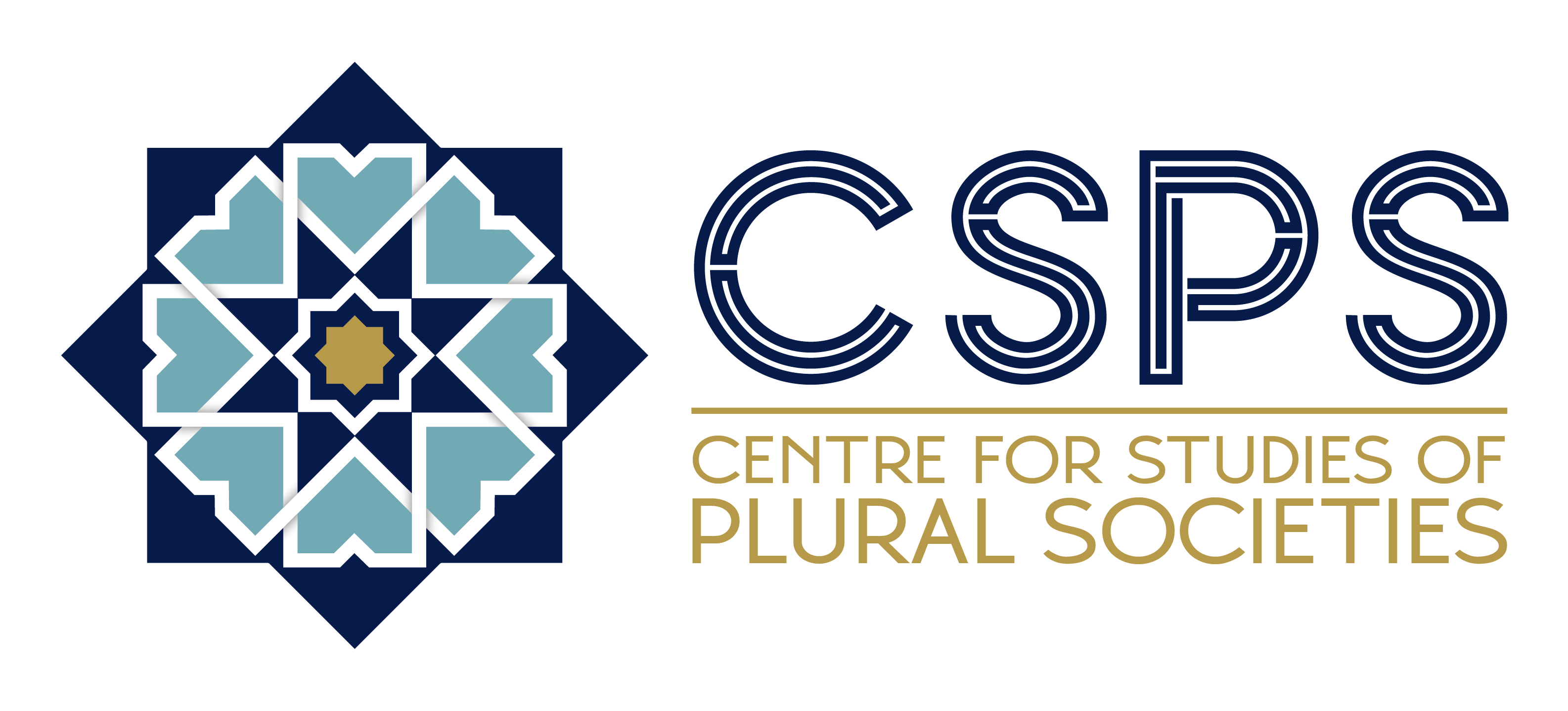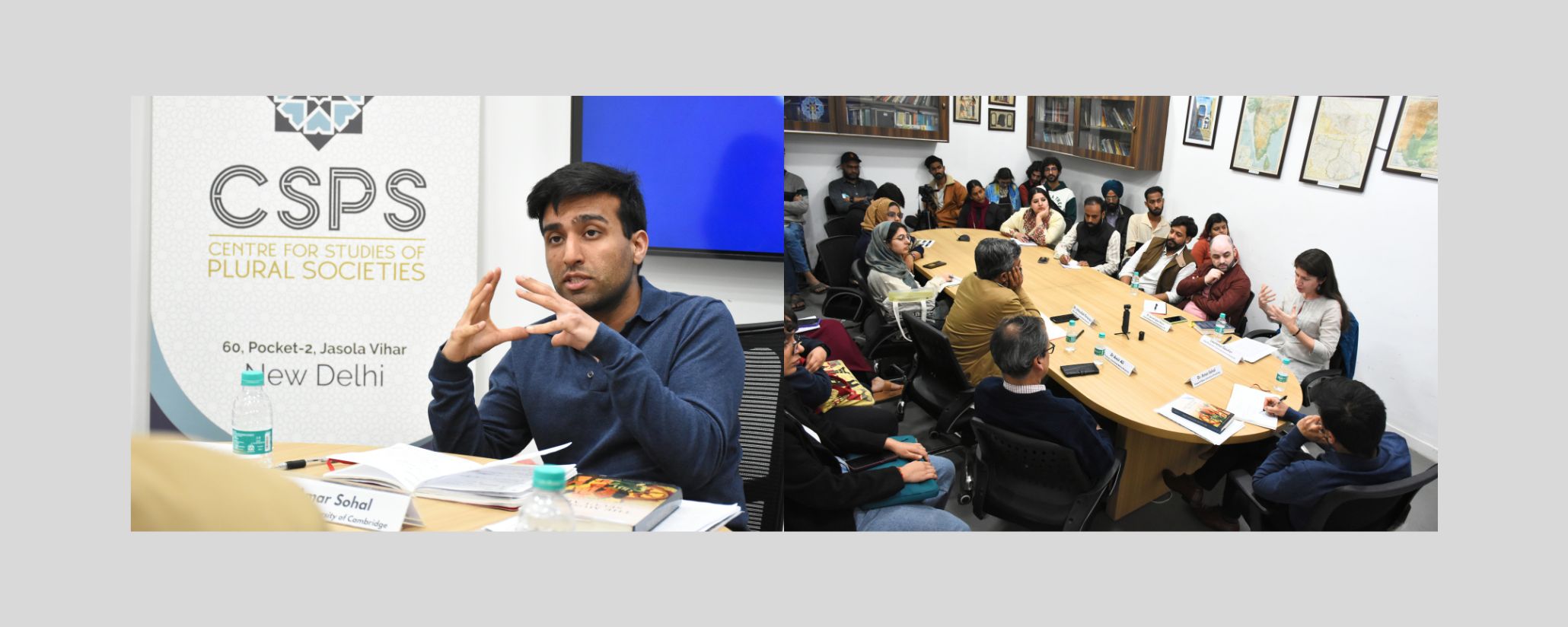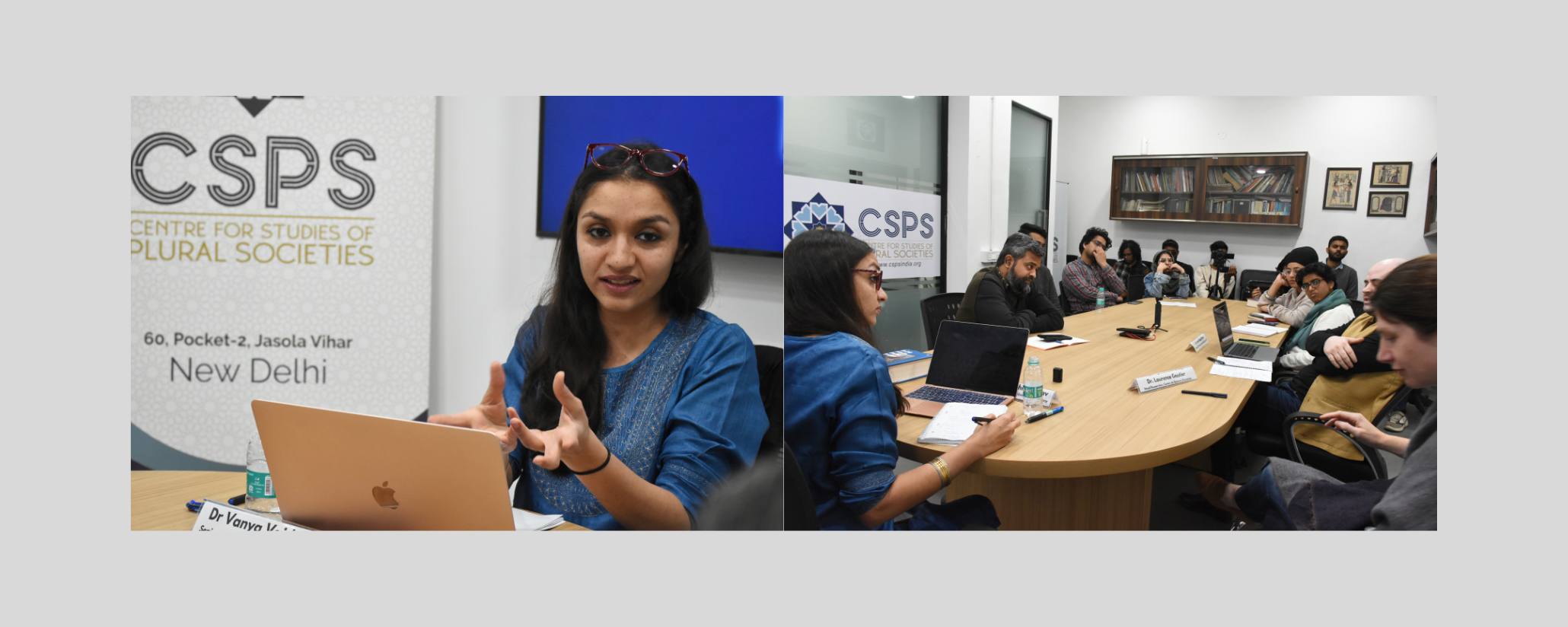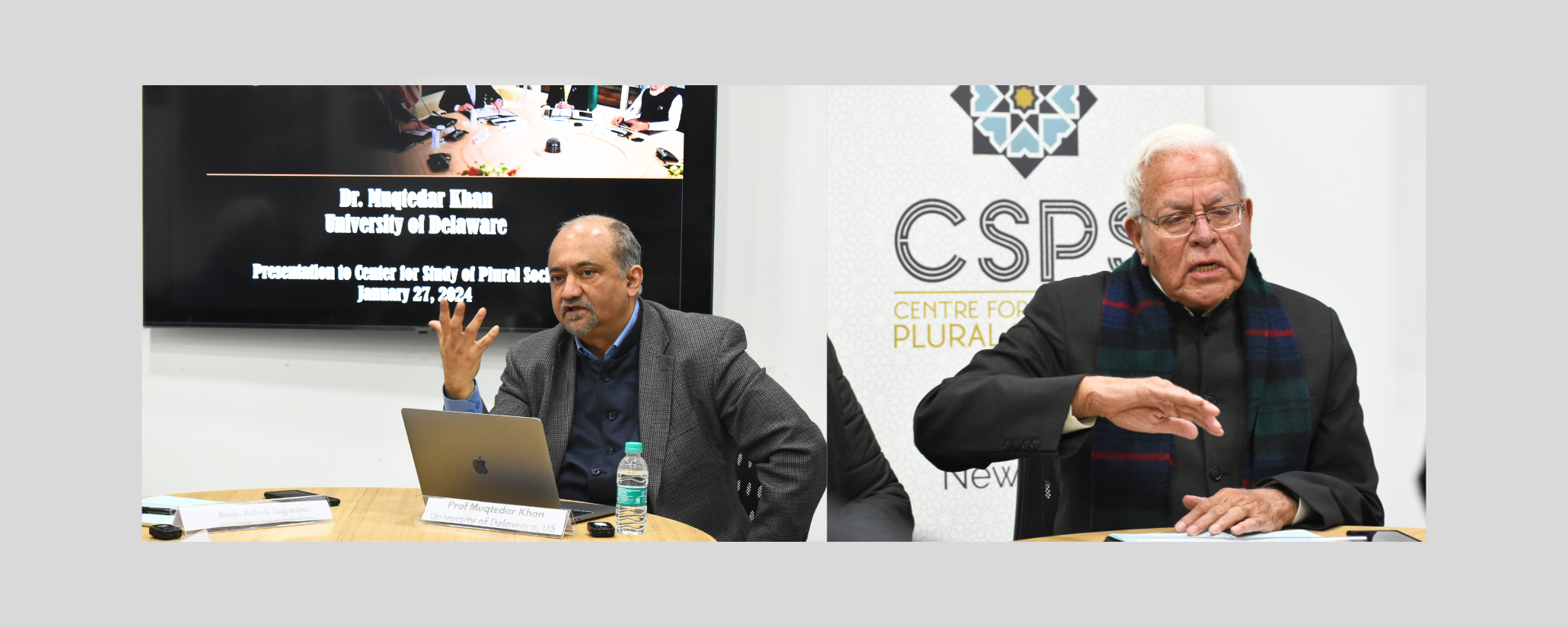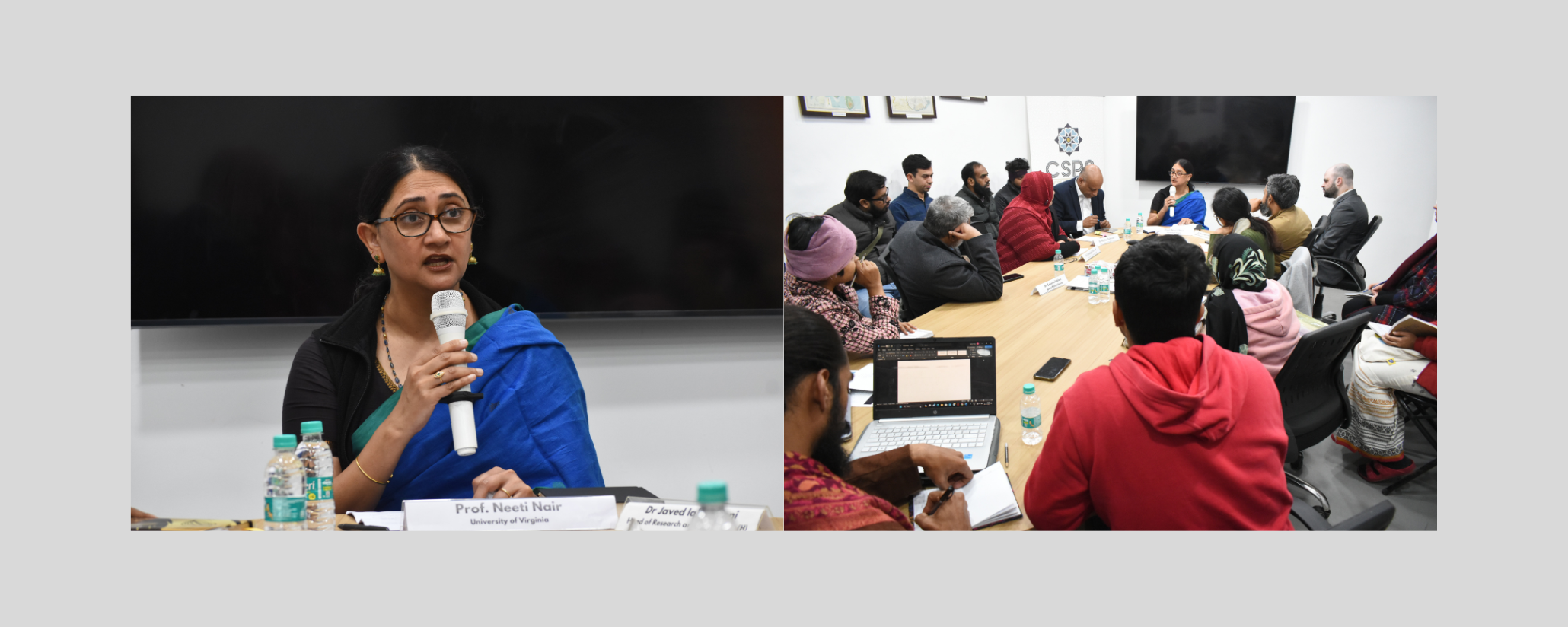Centre for Studies of Plural Societies (CSPS) organised a book discussion on“The Muslim Secular” authored by Dr Amar Sohal. The session was chaired by Dr Amir Ali, Assistant Professor at the Centre for Political Studies, School of Social Sciences, Jawaharlal Nehru University, New Delhi. It was also attended by Dr Laurence Gautier, Head Researcher at Centre de Sciences Humaines (CSH), Dr. Irfanullah Farooqi (Assistant Professor, South Asian University), Dr. Javed Iqbal Wani (Senior Assistant Professor at Ambedkar University Delhi; Head of Research and Publication at CSPS), along with doctoral scholars and students from various universities.
The session commenced with a discussion on the intricacies of Islamic universalism and the pursuit of a secular project in the State of Pakistan by Muhammad Ali Jinnah. It touched upon the narratives of nationalism that were often led by upper caste muslim voices while the subcontinent saw the rise of a muslim-minority anxiety with the coming of the Two Nation Theory. These rigid categorisations sought to reverse the trend of fluidity that existed prior to the onset of colonialism. Dr. Amar Sohal touched upon the enlightening journey of the complex intersection of religion, identity, and secularism within Muslim communities. Through meticulous research and thoughtful analysis, Sohal challenges conventional understandings of secularism and offers a nuanced perspective that is both insightful and compelling.
The discussion navigated the intricate dynamics of identity formation among Muslims. By examining into the diverse ways in which individuals negotiate their religious beliefs with the demands of modernity and secularism, it highlights the multiplicity of experiences within Muslim societies. Foregrounding the voices of ordinary Muslims, the subject provided a much-needed counterpoint to mainstream narratives that often essentialise or marginalise their experiences. Central to Sohal’s argument was the notion of “Muslim secularism,” a concept that he defined as a dynamic process through which individuals engage with secular norms while still maintaining a connection to their religious heritage. Rather than viewing secularism as antithetical to Islam, Sohal suggests that it can coexist with religious faith, leading to the emergence of new forms of Muslim identity that are both rooted in tradition and responsive to modern realities. Through a series of case studies and theoretical reflections, Dr Sohal illustrated the diverse manifestations of Muslim secularism across different contexts, from Europe to the Middle East to South Asia. He examines how factors such as colonialism, globalisation, and migration have shaped the experiences of Muslims in various parts of the world, shedding light on the complex interplay between religion, culture, and politics.
During the course of the talk, Dr. Sohal talked about the concepts of universalism in Islam, secularism and the impacts that Partition had on the configuration of the subcontinent’s politics that belied religious communities and their claim to the State. Delving into the intricate history of the subcontinent briefly, he underpinned the way sovereignty was shared among various communities prior to the hard, rigid binaries that were later cemented with the onset of colonisation. He emphasised that only a willing minority could ‘actualise democracy’, the evolution of political thought and the shaping of a ‘majoritarian’ narrative along with its assumed fears in post-partition South Asia. Participants appreciated the book’s thought-provoking analysis of secularism in Muslim-majority societies and identified areas for further research and discussion. Participants also discussed the central themes explored by Sohal, including the historical development of secularism, the role of Islam in governance, and the tensions between religious and secular authorities. There was a consensus that Sohal’s analysis of case studies from various Muslim-majority countries provided valuable insights into the diverse approaches to secularism and the complex interactions between religion and politics. Overall, the discussion deepened participants’ understanding of the complexities inherent in navigating the relationship between religion and state in diverse socio political contexts.
The talk was followed by a Q&A session that delved into the prior discussion with queries including why certain terminologies were picked over others, the geographical distribution of the mentioned political thinkers and the evolving concepts of sub-nationalities, identities, secularism and the Nation-State.
About the Speaker:
About the author: Amar Sohal is an Early-Career Research Fellow in Politics and International Studies at University of Cambridge. An intellectual historian of modern India and Pakistan, Amar is interested in those ideas that continue to shape contemporary politics in both countries. His research focuses on anti-colonial nationalism, religious politics, and the secular state.
Amar read History at University College London before going to Balliol College, Oxford for a MSt in South Asian History and Hindi Literature. In 2019, he completed his DPhil in History at Merton College, Oxford under the supervision of Professor Faisal Devji. He has since revised his dissertation for a monograph, The Muslim Secular: Parity and the Politics of India’s Partition (OUP, 2023). It examines the political thought of three eminent Indian Muslim nationalists of the twentieth century—Abul Kalam Azad, Sheikh Abdullah, and Abdul Ghaffar Khan. Amar argues for the presence of a distinct Muslim secularity within the grander intellectual family of secular Indian nationalism.
About the Chair: Dr Amir Ali is an Assistant Professor at the Centre for Political Studies, School of Social Sciences, Jawaharlal Nehru University, New Delhi. He teaches courses in political theory and has interests in multiculturalism, group rights and political Islam. Previously, he has taught at the Jamia Millia Islamia University, New Delhi, and was a Visiting Fellow at St Antony’s College, University of Oxford, UK. He has written a book on Brexit and Liberal Democracy: Populism, Sovereignty, and the Nation-State (Routledge), his other recent publication includes: South Asian Islam and British Multiculturalism (Routledge).
The report is prepared by Callistine Lewis, a research intern at CSPS
